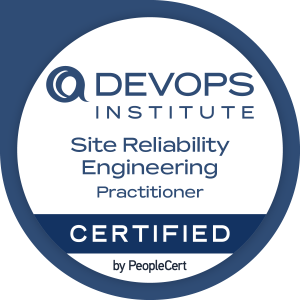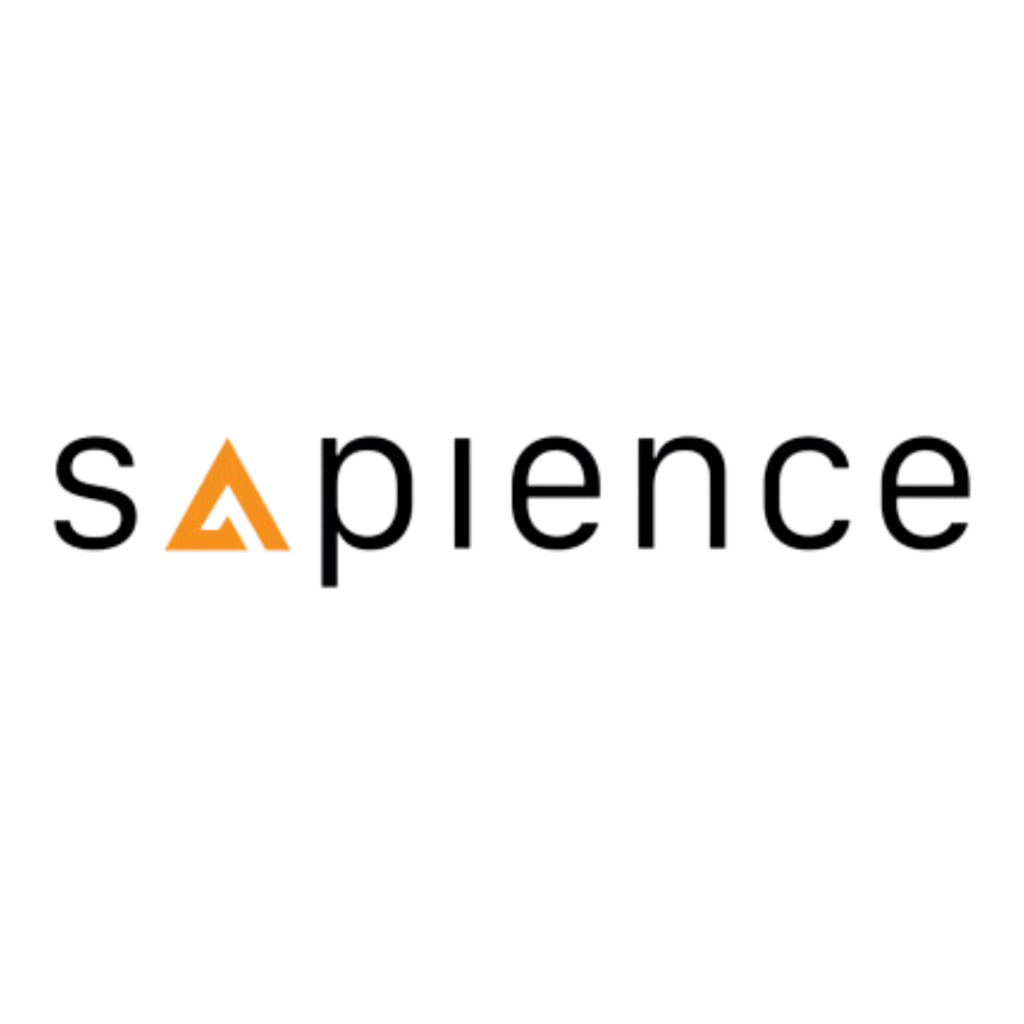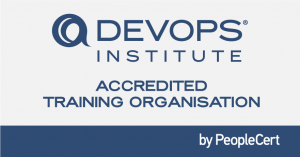Site Reliability Engineering Practitioner
The SRE (Site Reliability Engineering) Practitioner course introduces ways to economically and reliably scale services in an organisation. It explores strategies to improve agility, cross-functional collaboration, and transparency of health of services towards building resiliency by design, automation and closed loop remediations.
The course aims to equip participants with the practices, methods, and tools to engage people across the organisation involved in reliability through the use of real-life scenarios and case stories. Upon completion of the course, participants will have tangible takeaways to leverage when back in the office such as implementing SRE models that fit their organisational context, building advanced observability in distributed systems, building resiliency by design and effective incident responses using SRE practices.
The course is developed by leveraging key SRE sources, engaging with thought-leaders in the SRE space and working with organisations embracing SRE to extract real-life best practices and has been designed to teach the key principles & practices necessary for starting SRE adoption.
- SRE Anti-patterns
○ SRE in a distributed ecosystem
○ Avoiding SRE antipatterns - SLO is a proxy for customer happiness
○ What has changed with SLOs?
○ SLIs and system boundaries
○ Error Budgets, velocity and risk - Building secure and reliable systems
○ Non-Abstract Large Scale Design
○ Fault-tolerant designs
○ Designing for security, resiliency, scalability and changing landscapes - Full-stack observability
○ Pillars of Observability
○ Observability MELT
○ Using Open Telemetry - Platform Engineering and AIOps
○ Platform-centric approaches
○ Using DataOps and AIOps to improve resiliency
○ AIOps Simple Recipe - SRE & Incident Response Management
○ Incident Command Framework
○ OODA Loop
○ SRE and closed-loop remediation
○ AI/ML and Swarming for better incident management - Chaos Engineering
○ Chaos Engineering Defined
○ Myths of Chaos
○ Chaos Engineering Experiments and Resources
○ Game Day Basics and Exercises - SRE is the purest form of DevOps
○ Key Principles of SRE
○ Metrics for Success
○ SRE Execution Models
○ Culture and behavioural skills
○ Transformations and SRE
By completing this course, the following Learning Outcomes (LO) will be achieved:
- LO1: Curate information for user guides and training materials of infrastructure administrative activities to meet Service Level Objectives.
- LO2: Manage infrastructure configuration and support activities for secure and reliable systems.
- LO3: Diagnose underlying technical problems causing disruptions guided by Observability.
- LO4: Create plans for infrastructure upgrades and propose improvements based on user needs.
- LO5: Manage technical issues within an agreed timeframe utilising Site Reliability Engineering, Incident Response Management and Problem Management.
- LO6: Implement tests of infrastructure systems to evaluate the impact of potential upgrades and updates using Chaos Engineering.
- Language and literacy proficiency level : Minimum 3 GCE ‘O’ Levels Passes including English or WPL Level 5
- Required years of experience in relevant domain : Minimum of 1 year of working experience.
Candidates who attend the course will be better positioned to successfully complete the SRE Practitioner certification examination. The SRE Foundation certification is a prerequisite to attempt the SRE Practitioner examination.
About the examination:
- Exam duration: 60 minutes to complete the exam.
- Exam format: 40 questions, multiple choice, proctored, open-book.
- Passing score: 26 marks required to pass (out of 40 available) – 65%.
All exams will be conducted online. The exams are web-proctored by PeopleCert and are available 24/7. Successful participants earn the SRE Practitioner certification.
Certificate of Attendance from Sapience Consulting:
Upon meeting at least 75% attendance and passing the assessment(s), participants will receive a Certificate of Attendance from Sapience Consulting.
The following information are relevant for candidates who are seeking SSG-funding support for the course:
- Assessments
Candidates must pass all prescribed tests/assessments and attain 100% competency to be eligible for funding support.
○ Mode of Assessment: Written Assessment, Case Study Assessment. - Statement of Attainment (SOA) from SkillsFuture Singapore:
After passing the assessment(s), you’ll receive a SkillsFuture Singapore Statement of Attainment (SOA) certifying that you have achieved the following Competency Standard(s):
○ ICT-OUS-3007-1.1 – Infrastructure Support-3.
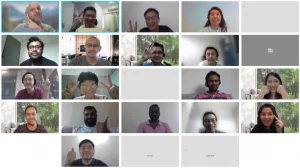
Hear What Our Students Say About Us
Funding Available
SSG Funding
SSG Funding
PSEA Funding
PSEA Funding
SkillsFuture Credit
SkillsFuture Credit
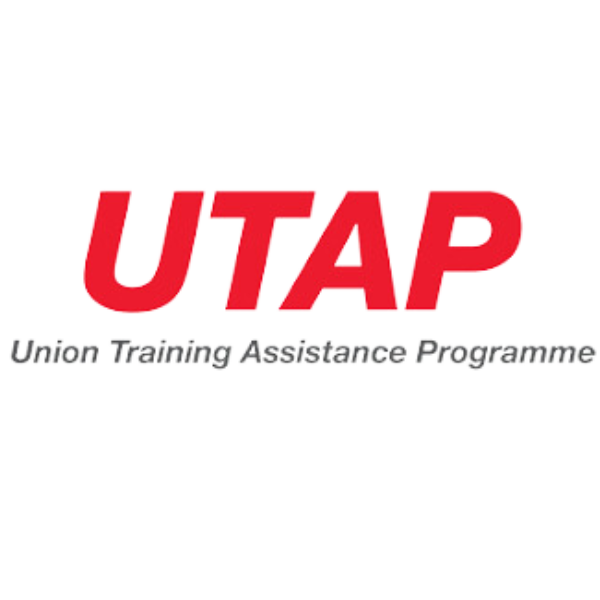
Supported by UTAP
Supported by UTAP
Why Us?
Complimentary refresher
Participants can attend a complimentary refresher if they wish(1-year validity and subject to approval)
Post Course Advisory Support
Should you have questions after the course, you may contact the trainer for assistance regarding course material
E-learning Portal Access
1 year access to our E-learning portal. Including:
- E-books available for download
- Official sample exam
- Randomised quiz formulated by Sapience Trainers based on past examinations
Meet Your Trainer
Principal Consultant
Sapience Consulting
Senior Consultant
Sapience Consulting
Senior Consultant
Sapience Consulting
Senior Consultant
Sapience Consulting
Senior Consultant
Sapience Consulting
Consultant
Sapience Consulting
Related courses
Devops and the Swirl logo are registered trademarks of the PeopleCert group. Used under licence from PeopleCert. All rights reserved.
